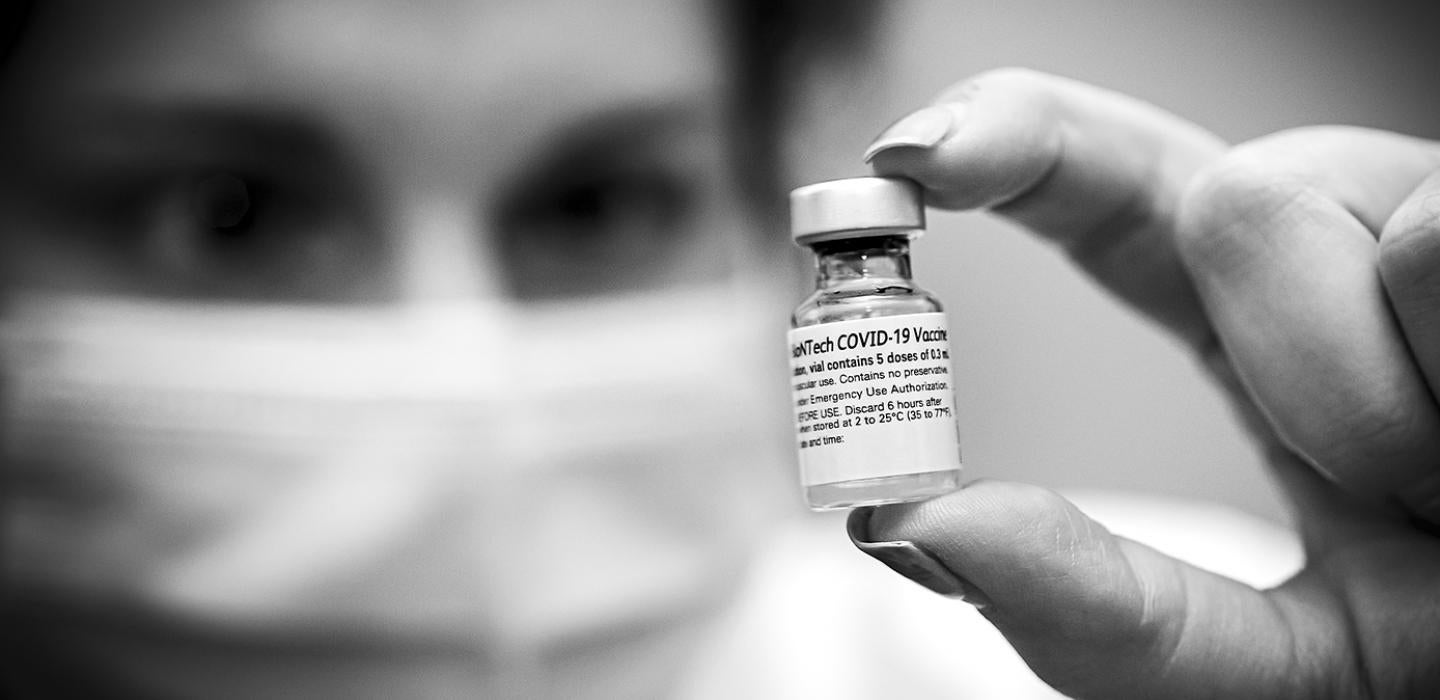
Subscribe to Pittwire Today
Get the most interesting and important stories from the University of Pittsburgh.Online misinformation on health topics has plagued the medical community since the world first logged onto the internet. And even before the first COVID-19 vaccine candidates were approved and administered, false information was spreading on social media sites.
Thanks to a grant from the Richard King Mellon Foundation, Pitt researchers are investigating the how’s and why’s of this misinformation, with a goal to ultimately create beneficial and educational messaging about vaccines.
“Vaccines are often the victim of their own success,” said Beth Hoffman, a PhD student in the University of Pittsburgh Department of Behavioral and Community Health Sciences and a research assistant at the Center for Research on Behavioral Health, Media and Technology. “I think one of the reasons we’ve seen a rise in anti-vaccine sentiment over the years is people are losing memory of how devastating and deadly these illnesses are.”
Hoffman, along with Jaime Sidani, assistant professor of medicine and a core faculty member in the center, have been conducting social network analyses of hesitancy around the COVID-19 vaccines since the beginning of the pandemic. With this new $117,000 grant and by using publicly available information, the duo will study how misinformation campaign messaging is created and how it changes over time, including how it impacts different communities, such as minority populations.
“We saw some national surveys indicating many people were hesitant to get the COVID-19 vaccine, even before a vaccine candidate became available, and that was increasing over time with each subsequent survey. But they didn’t really explain why or how,” said Sidani. “We’re using social network analysis to see how messages spread among groups and into other groups, but also learn more about the reasons for hesitancy and develop educational messaging to counter that.”
Sidani said anti-vaccine messaging is suspected to have capitalized on historic mistrust between minority populations and medical research practices.
The research team first noticed misinformation on the COVID-19 vaccines this summer, and was notified of the Richard King Mellon Foundation grant in October, shortly before the first vaccines were announced.
“Timing-wise, we have a really great opportunity here to see what public sentiment will be like for the vaccines now that they’ve started rolling out,” said Hoffman.
Sidani and Hoffman are working with researchers in Pitt’s Graduate School of Public Health and the data analytics company VISIMO on the initial phases of the project. The study will go on through the end of 2021.
“A vaccine that is scientifically proven to be 95% effective still will be ineffective if it is distrusted and shunned by significant percentages of the population,” said Sam Reiman, director of the Richard King Mellon Foundation. “We must communicate effectively about the vaccine to overcome that misinformation and distrust. And the foundation is hopeful this research will show the way.”


